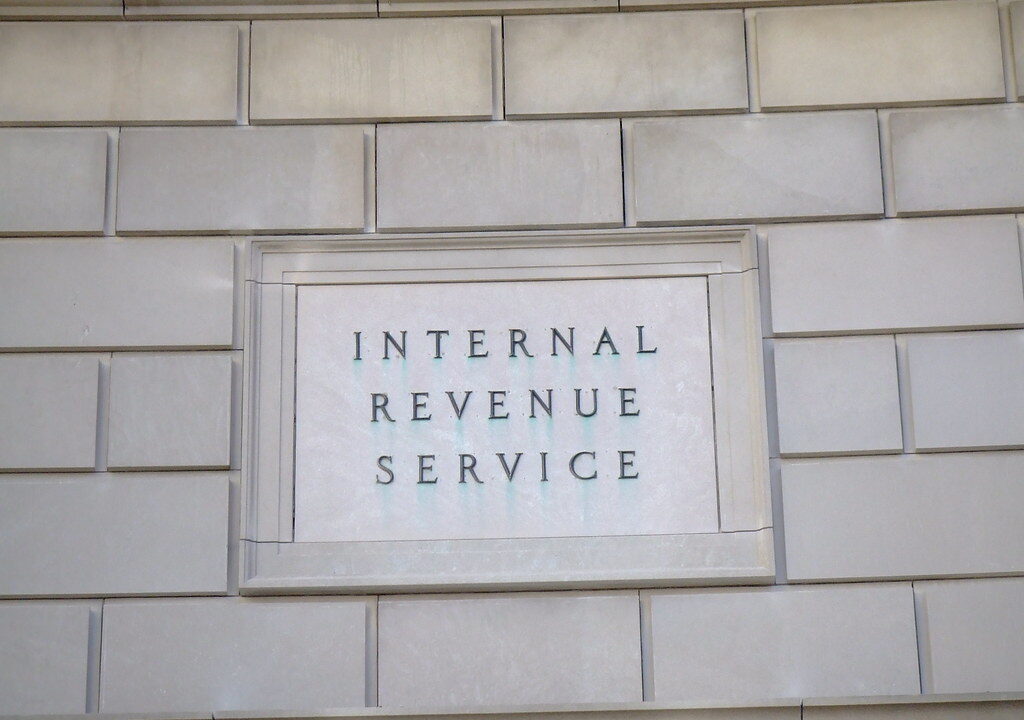 "Internal Revenue Service" by saturnism is marked with CC BY-SA 2.0.
"Internal Revenue Service" by saturnism is marked with CC BY-SA 2.0.
The first bill taken up by the House under Republican leadership will rescind tens of billions of dollars allocated by Democrats to the IRS to hire 87,000 new agents to ramp up taxpayer audits.
Majority Leader-elect Steve Scalise (R-La.) in a recent letter announced “ready-to-go” legislation that Republican leadership plans to bring to the House Floor in the first two weeks of 2023. The very first bill at the top of the agenda is the Family and Small Business Taxpayer Protection Act (H.R. 23) which repeals the vast majority of the additional $80 billion appropriated to the IRS in Section 10301 of Democrats’ Inflation Reduction Act.
Key Vote Alert: Americans for Tax Reform strongly endorses the Family and Small Business Taxpayer Protection Act and urges all members to vote “YES” on H.R. 23.
Promise kept
The vote will fulfill the promise made in September by Republican House Leader Kevin McCarthy (R-Calif.) that the number one priority of a Republican House Majority would be rolling back increased IRS funding for tax enforcement.
“On our very first bill, we’re going to repeal 87,000 IRS agents,” McCarthy said at the unveiling of the Commitment to America Agenda, an outline of House Republicans’ agenda for the 118th Congress. “Our job is to work for you, not go after you.”
What Democrats’ funding for a beefed-up IRS went to
The dishonestly named Inflation Reduction Act added $80 billion in new funding for the IRS. This additional spending will go towards hiring 87,000 new IRS agents to go after American families and small businesses to help finance Democrats trillion-dollar spending spree.
Of the $80 billion in new funding, $45.6 billion will go towards tax enforcement while a mere $3.18 billion goes towards taxpayer services – meaning Democrats spent 14 times more on increasing enforcement than improving taxpayer services. Taxpayer services include things like pre-filing assistance and education along with filing and account services.
Rather than putting this new funding towards hiring new workers to answer taxpayers’ phone calls, of which the IRS only currently answers about 20 percent, or investing in replacing their outdated computer systems which have resulted in countless Americans getting their tax returns late, Democrats instead decided to focus on increasing audits on middle and lower-class American families.
Democrats have claimed this funding won’t go towards any new IRS audits on Americans making less than $400,000, but a preliminary assessment from the Congressional Budget Office (CBO) shows otherwise. The CBO estimates that at least $20 billion of new revenue from increased IRS audits will come from individuals earning less than $400,000 per year.
What Republicans’ Family and Small Business Taxpayer Protection Act does
The Family and Small Business Taxpayer Protection Act will repeal roughly $72 billion of the $80 billion in taxpayer funds appropriated to the IRS by Democrats.
Specifically, the Republican bill:
- Repeals the $45.6 billion for increased enforcement activities to increase revenue from taxpayer audits
- Repeals $25.3 billion for IRS enforcement programs, new agent office rent and the purchase of new cars for agents. The IRS does not need new offices and does not need more cars. In fact the official IRS watchdog published an audit showing the IRS has too many cars and fails to document vehicle use to ensure the cars are not being used for personal or political reasons. Regarding office space, the IRS chief recently testified that 53% of IRS employees never set foot into an office at all.
- Repeals the $15 million for a pilot program for the creation of government-run tax preparation software in which the IRS would be responsible for calculating a filer’s tax liability and for managing contested tax returns – an obvious conflict of interest where the tax collector becomes tax preparer.
GOP bill maintains funding for taxpayer services and modernizing business systems
The Family and Small Business Taxpayer Protection Act maintains IRA levels of funding for taxpayer services and modernizing business systems. The roughly $3.18 billion in additional appropriations for taxpayer services and the roughly $4.75 billion in additional appropriations for “business systems modernization” is left untouched in the Republican repeal bill.
This directly contradicts inaccurate claims from left-wing media including the Washington Post that Republicans are repealing funding for “improving customer service and modernizing the agency’s embarrassingly decrepit IT systems.”
Over the past 40 years — regardless of who controlled congress and the White House and regardless of funding level — the IRS has failed in multiple attempts to upgrade its computer systems.

